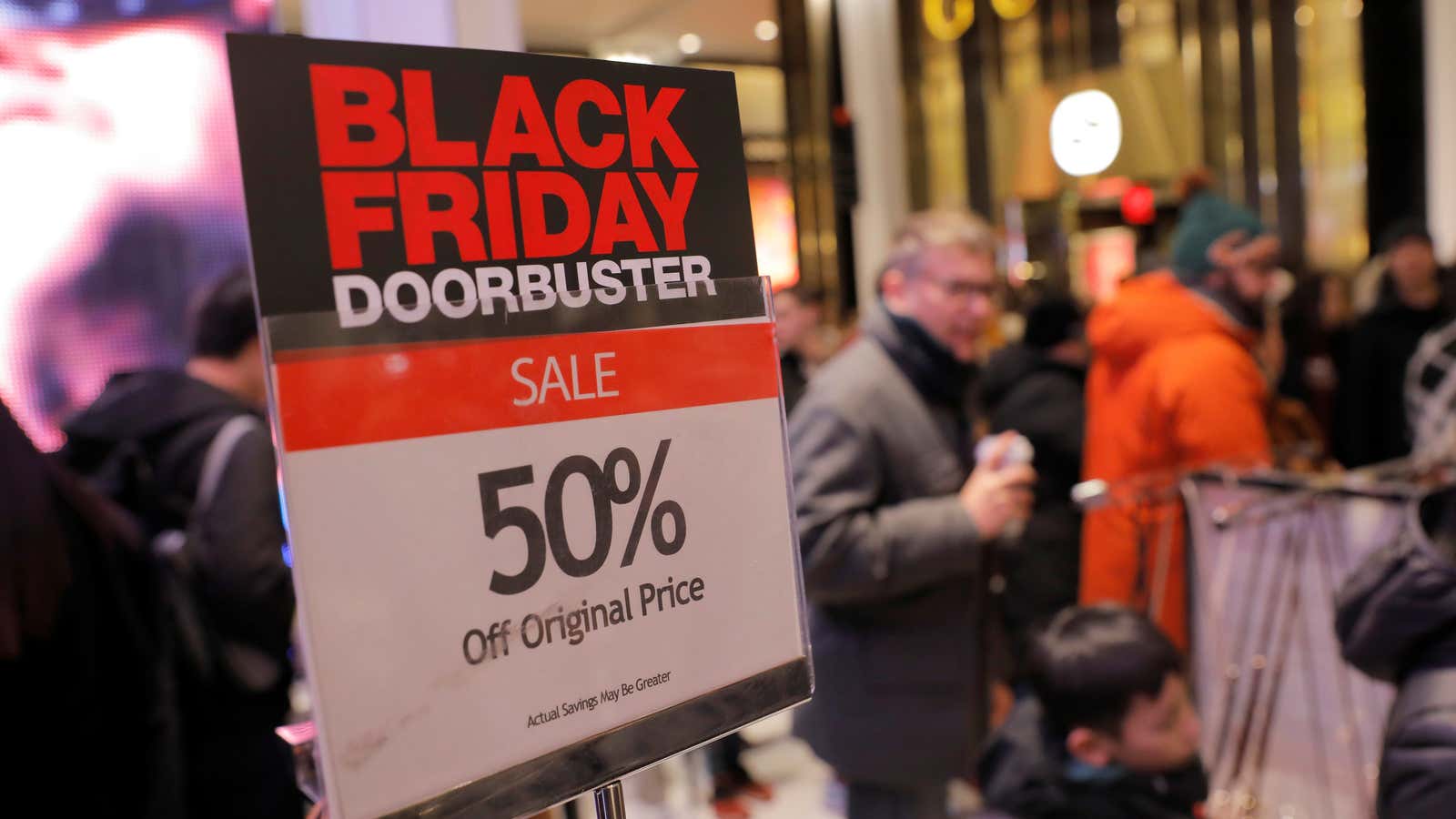Even as the Black Friday shopping phenomenon has spread around the world, vexing retailers with its proliferating promotions, the day itself has been losing significance for years. The holiday discounts that once defined the US event have crept forward into Thanksgiving and earlier, while e-commerce has eliminated the need for shoppers to crowd stores in a fight for the best deals.
This year, Black Friday must also contend with a pandemic that makes it risky, if not plain dangerous, for large groups to gather in stores. It’s reasonable to wonder if 2020 will mark its end. But while Black Friday is set to continue its march toward irrelevance, it isn’t ready to disappear entirely.
“You still have a lot of people that are interested in shopping on Black Friday,” says Tyson Cornell, the consumer markets lead for accounting and consultancy firm PwC. In a survey of more than 1,000 shoppers, PwC found 36% of those planning to shop during Black Friday week still expected to do most of their shopping on the Friday itself. “That’s only down 4% year over year, which is a little surprising to be honest,” Cornell says. Many anticipated shopping online only this year, but nearly half also planned to shop in stores.
“Black Friday also counts as a social event that individuals like to be part of,” Cornell adds. At this point, it’s a holiday tradition.
Nate Shenck, head of retail at Boston Consulting Group, sees Black Friday continuing to lose stature as deals spread out and shoppers mix more online shopping with their in-store purchases. But that doesn’t mean 2020 will spell Black Friday’s doom. “I’ve heard some people say, ‘Does this mean the end of Black Friday?'” he says. “I think it will be very different but won’t be the end of Black Friday.”
It certainly isn’t getting through 2020 unscathed. A survey of more than 13,000 American adults by market intelligence firm CivicScience found only 15% said they were likely to shop on Black Friday this year, down from 21% last year.
But PwC’s Cornell believes the steps retailers have taken such as requiring masks, limiting customers, and implementing extra cleaning have reassured many shoppers. It also found younger consumers are more likely to head to stores, as are consumers living in suburbs and small towns, especially in the southern US. “If you look into more rural and suburban areas, I think people have gotten used to the unfortunate new normal of going into stores and shopping, and they don’t see Black Friday as being potentially anything really different,” Cornell says. The Wall Street Journal spotted plenty of holiday shoppers at the malls it checked this weekend.
Still, Black Friday is changing. Retailers were already advertising holiday discounts well before Black Friday, and this year started the deals even sooner. Companies hit by the pandemic are trying to secure their share of shoppers’ spending early, limit crowds in stores, and avoid a surge in online orders that could snarl the operations of delivery services and result in delays. The pandemic has also sent e-commerce soaring, and many shoppers, including in countries such as Germany and the UK, anticipate doing their Black Friday shopping entirely online this year.
Some of the behavior is likely to stick around for future Black Fridays, even if they don’t mean what they used to.




